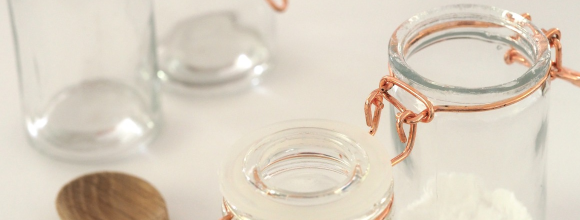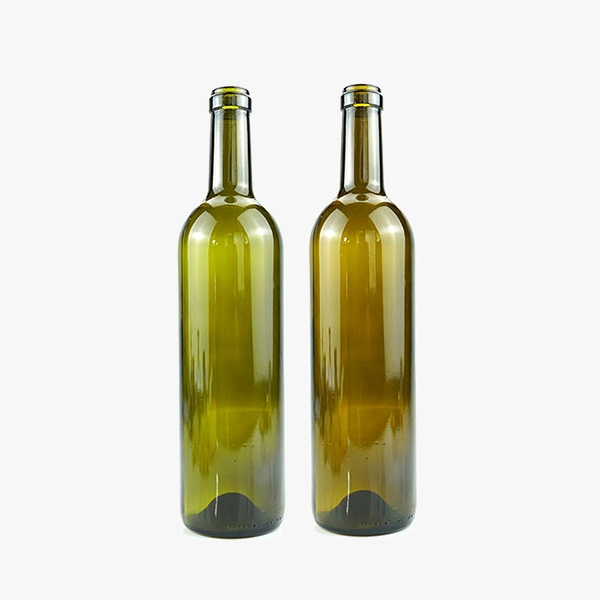Things to Note When Purchasing Glass Bottles in Bulk
Having a clear understanding of the entire process is key to making a successful bulk purchase. A well-rounded perspective allows you to evaluate factors like quality, cost, and supplier relationships. This article covers all the essential aspects of bulk glass bottle purchasing.
Buying glass bottles in bulk goes beyond simply securing a large order at a lower price. It’s about selecting the right bottles to meet your specific needs. Choosing the wrong type can lead to issues that impact your business or project. This guide highlights the critical factors to consider when sourcing glass bottles in bulk.
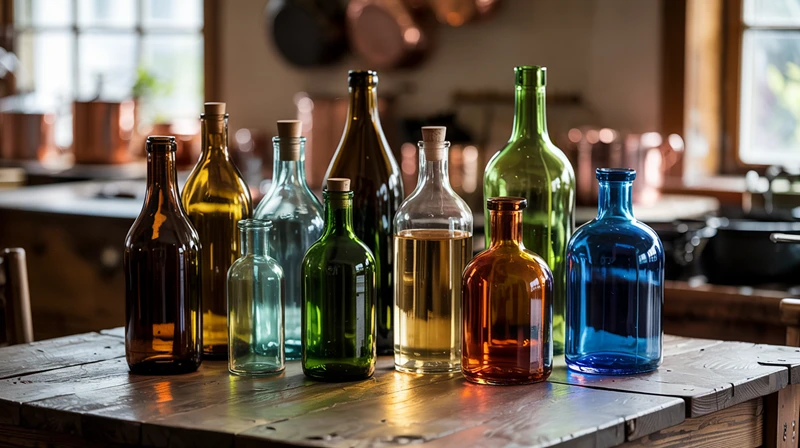
Understand Your Needs
Understanding your specific needs is the foundation of a smart purchase. Taking the time to evaluate your requirements ensures you select bottles that align with your product, preventing mismatches and unnecessary expenses.
Before purchasing glass bottles in bulk, clarify your needs by asking:
- What will the bottles be used for?
- What size and shape are required?
- Do they need special features, such as a specific closure type or label space?
Answering these questions will help streamline your search, making it easier to choose bottles that fit your purpose effectively.
Quality of Glass
When buying glass bottles in bulk, quality should be a top priority. Consider the durability of the glass—thicker glass is generally stronger and less prone to breaking, which is crucial if the bottles will be frequently handled or at risk of being dropped.
In industries like beverages, fragile bottles can lead to product loss and safety hazards. Another key quality factor is glass clarity. Clear bottles are often preferred for showcasing products, while tinted glass may be necessary for items requiring UV protection.
Ensure the bottles meet industry quality standards. If possible, request samples from the supplier before committing to a large order. For food, beverage, or cosmetic use, safety is essential. Verify that the bottles are lead-free and comply with food safety regulations and industry certifications.
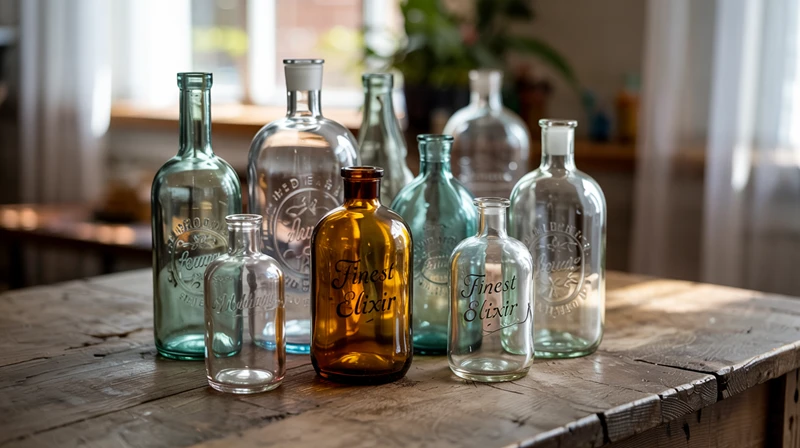
Cost Considerations
Bulk orders often come with lower prices per unit, making them attractive to cost-conscious buyers. It is important to compare different suppliers to secure the best deal possible.
One of the main benefits of buying glass bottles in bulk is that you can often secure a lower price per unit. Bulk pricing can lead to significant savings compared to buying bottles individually. However, compare different suppliers to ensure you get the best deal.
Shipping and handling can add unexpected costs, especially with heavy and fragile items. Knowing these extra fees up front prevents surprises later. Make sure to review shipping policies and ask about discounts for large orders.
Cost is not only about the price of the bottles. You must also consider shipping and handling fees. Glass is heavy and fragile so shipping costs can add up. When looking at bulk orders, ask for detailed shipping information and see if the supplier offers discounts for large orders.
Payment terms can affect your overall budget. Some suppliers may require full payment upfront, while others offer payment plans or terms. Make sure you understand the payment policy before placing your order.
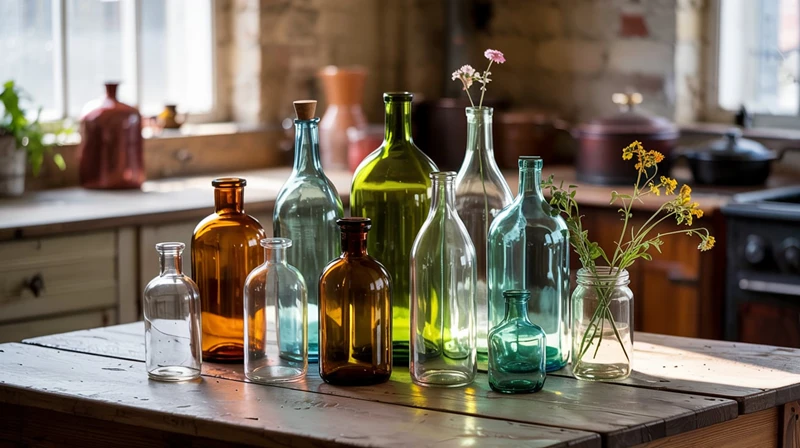
Supplier Research
A supplier’s reputation is a good indicator of their reliability and product quality. Reading reviews helps you learn from the experiences of others. Trusted suppliers usually have consistent positive feedback from their clients.
Certifications serve as proof that the supplier follows quality and safety protocols. This information helps ensure that you meet industry standards and legal requirements. Always ask for official documentation when needed.
A trustworthy supplier should be able to provide evidence of quality certifications. Look for suppliers who follow recognized industry standards. These certifications can include ISO standards or other specific food and beverage safety marks.
Good customer service is crucial for handling issues and ensuring a smooth process. Responsive communication builds trust and makes problem-solving easier. This section highlights the importance of choosing a supplier who values customer care.
Types of Glass Bottles
Choosing the right glass bottle depends on its intended use. Different industries require specific bottle types to ensure product safety, ease of use, and durability. Here are the most common types:
- Beverage Bottles: Designed for liquids like water, soda, or alcohol, beverage bottles need to be durable and easy to carry. They often have unique shapes, embossed logos, or special finishes for branding and storage efficiency.
- Cosmetic Bottles: These bottles are used for perfumes, lotions, and beauty products, and they prioritize aesthetics and safety. Choosing glass that does not react with the product inside is crucial while maintaining a sleek, attractive look.
- Food Storage Bottles: Ideal for sauces, oils, and spices, food storage bottles must be airtight and resistant to breakage. Choosing bottles with secure seals ensures freshness and prevents contamination.
- Specialty Bottles: Some industries require bottles with specific features, such as droppers, spray tops, or unique closures. Before purchasing, check the exact specifications to ensure they meet your needs.
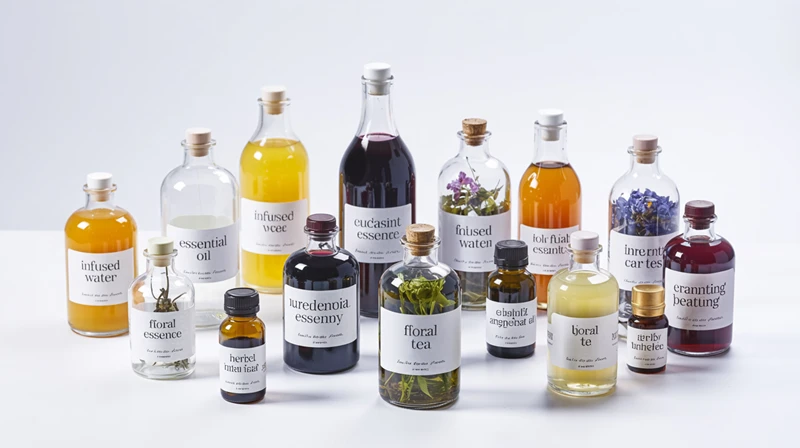
Design and Customization Options
Custom labels and printing add a personal touch to your bottles. They can make your product more recognizable and trustworthy.
For many businesses, the appearance of the bottle is as important as its functionality. Look for suppliers who offer customization options. You can print your company logo on the bottle or add special designs. Customized bottles can help with branding and product recognition.
Different shapes and sizes can suit various products and branding styles. The correct form factor helps ensure the bottle is practical and visually appealing. Consider the physical dimensions that match your product needs.
Glass bottles in bulk come in different shapes and sizes. It is essential to choose bottles that not only fit your product but also your brand image. For example, round bottles are standard for drinks, while rectangular bottles might be preferred for certain food products.
The closure on a bottle plays an important role in preserving its contents. A good closure system prevents leaks and maintains product quality. This section explains the various closure options available to ensure a secure fit.
The type of closure is another important aspect. Some bottles come with screw caps, while others may have corks or pump dispensers.
Environmental Considerations
Recyclability is a major benefit of glass bottles that appeals to eco-conscious buyers. Knowing that your bottles can be recycled helps reduce waste.
Glass is a recyclable material, a strong point for many eco-conscious companies. When buying glass bottles in bulk, check if the supplier promotes recycling programs. This helps the environment and appeals to customers who value sustainability.
Consider the environmental impact of the production process. Some suppliers focus on reducing energy use and waste during manufacturing. If environmental responsibility is important for your business, look for suppliers with details on their production practices.
The packaging used for shipping glass bottles is another factor to consider. Good packaging will protect the bottles during transit and reduce the chance of damage. Some suppliers use eco-friendly packaging, which can be a bonus if you are trying to reduce waste.
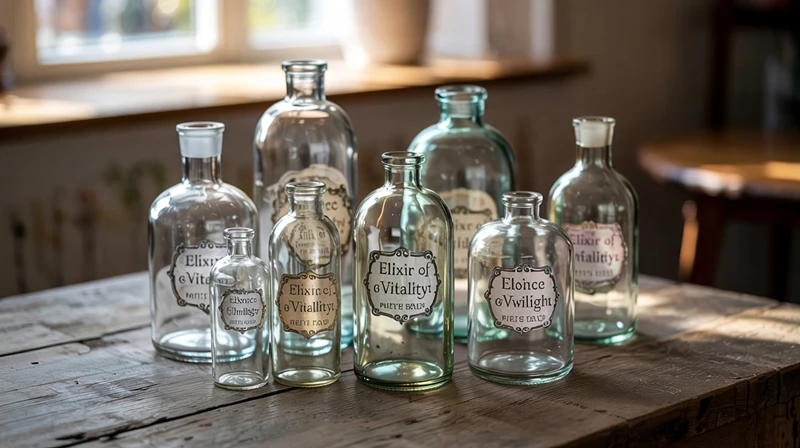
Storage and Handling
Proper storage is essential to keep your bottles intact and ready for use. Good storage practices reduce the risk of accidents and damage. Storing glass bottles is key to keeping them in good condition. Ensure you have a safe place to store the bottles once you receive them. Bottles should be stored in a dry area, away from places where they might be knocked over.
Glass bottles in bulk can be heavy and fragile. When handling them, it is important to follow safety guidelines to prevent injuries and damage. Use protective gear if necessary and avoid stacking bottles too high. Proper handling reduces the risk of accidents and breakage.
If you plan to reuse the bottles, consider the ease of cleaning them. Some glass bottles have smooth surfaces that make them easy to clean, while others may have more intricate designs that trap dirt. Choose bottles that meet your cleaning and maintenance requirements.
Legal and Regulatory Requirements
If you are purchasing glass bottles for food or beverages, you must follow local and national regulations. Check if the bottles meet the necessary safety standards. Some countries require specific markings or certifications on bottles that hold food or drinks.
For businesses that sell products in glass bottles, labeling is a critical aspect. Make sure the bottles have enough space for all the necessary information. This includes the product name, ingredients, and any required warning labels. Compliance with labeling laws helps avoid legal issues later on.
Import and export regulations can affect delivery and cost when buying from abroad. Understanding these rules avoids delays and extra charges.
Long-Term Considerations
When you buy glass bottles in bulk, consider your long-term needs. Ask yourself if the bottles will continue to meet your requirements as your business grows. Also, keep an eye on industry trends. For example, there may be changes in consumer preferences that favor a different type of bottle design or closure.
Effective inventory management prevents running out of stock and minimizes excess storage costs. Plan how you will manage your inventory. Keep track of your current stock and set up a system for reordering before you run out. This will help you avoid disruptions in your business. Working with a supplier who offers flexible reordering options can make this process easier.
Before making a large purchase, conduct a cost-benefit analysis. Compare the benefits of buying in bulk against the risk of having extra inventory. Consider factors such as storage space, potential price changes, and market demand. This analysis will help you make a more informed decision.
Tips for Negotiating with Suppliers
Negotiation skills can lead to better deals and smoother transactions. You can improve pricing and service quality by asking the right questions.
It is always a good idea to ask for samples before placing a bulk order. Samples allow you to check the quality of the bottles firsthand. If the samples meet your standards, you can be more confident in making a large purchase.
When buying glass bottles in bulk, you have room to negotiate. Ask about bulk discounts and flexible payment terms. Suppliers may offer lower prices for larger orders or long-term contracts. Negotiating can lead to better deals and improved terms for your business.
Clear details on products and policies prevent confusion later on. Written specifications, delivery schedules, and quality certifications protect both parties.
Before finalizing your order, request detailed information from the supplier. This includes product specifications, delivery schedules, and quality certifications. Having all the details in writing can prevent misunderstandings later on.
Comparing Multiple Suppliers
Comparing different suppliers ensures that you choose the best option for your needs. A clear comparison helps you weigh all the important factors like price, quality, and service.
When you have several potential suppliers, create a comparison table. List key factors such as price, quality, shipping costs, and customer service. This visual tool will help you decide which supplier best meets your needs.
Customer feedback is an important source of information. Look for honest reviews from other buyers. Feedback about delays, quality issues, or customer service problems can alert you to pitfalls. Use this information to guide your decision-making process.
If you have the opportunity, visit the supplier’s facility. This allows you to see the production process and quality control measures in place. A visit can give you peace of mind that the supplier is reliable and trustworthy.
Final Thoughts
A well-thought-out plan minimizes risks and maximizes benefits over time. Purchasing glass bottles in bulk requires careful planning and consideration. You can make an informed decision by understanding your needs, researching suppliers, and following the steps outlined above. Focus on quality, cost, and supplier reliability to ensure you receive bottles that meet your requirements.
Remember, buying glass bottles in bulk is not a one-time decision. It involves ongoing management of inventory, quality control, and supplier relationships. With careful planning and attention to detail, you can build a reliable supply chain that supports your business or project.

